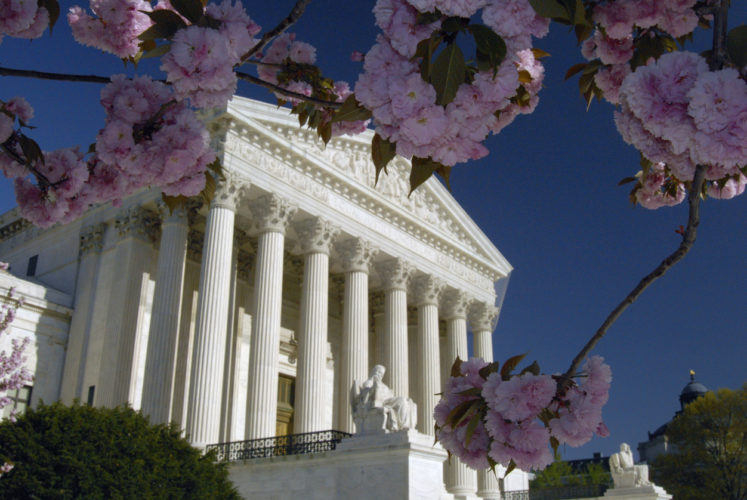The U.S. Supreme Court recently ruled that the Commerce Department may not, for now, include a citizenship question on the upcoming 2020 census. (Dep’t of Commerce v. New York (2019) 588 U.S. __.) In hearing several cases, including one in which Dannis Woliver Kelley represented the Los Angeles Unified School District, the Court held that the reason provided by the Secretary of Commerce for reinstating the citizenship question was pretextual and “seem[ed] to have been contrived.” The Court’s ruling is significant for local education entities, as data gathered by the census is used to determine federal funding. Ultimately, the Court’s order increases the chances that the census will be issued without the citizenship question; however, it remains to be seen if the Commerce Department will make further attempts to justify inclusion of the question to the courts before the census forms are printed.
Background
The United States census is used, among other purposes, to allocate funding for numerous federal grant programs, to help draw electoral districts, and to determine each state’s congressional apportionment. Historically, citizenship-related questions have been included on the census. But, in recent years, the Census Bureau has resisted proposals to include a citizenship question because doing so would discourage non-citizens from responding to the census. In 2018, however, Secretary of Commerce Wilbur Ross announced his decision to reinstate the citizenship question, purportedly at the request of the Department of Justice (DOJ), because citizenship data would allow better enforcement of the Voting Rights Act (VRA).
A number of plaintiffs filed lawsuits alleging that inclusion of the question would be a violation of the Enumeration Clause (i.e., the differential impact of the citizenship question on non-citizens is so severe that it interfered with the Secretary’s constitutional obligation to enumerate every person as part of the 2020 census), the Administrative Procedure Act (APA) (i.e., the Secretary’s decision to add a citizenship question was arbitrary/capricious and pretextual), and the Equal Protection Clause (i.e., the Secretary’s decision to add a citizenship question was motivated by a deliberate intent to discriminate against non-citizens).
Decision
The central question before the U.S. Supreme Court was whether Secretary Ross abused his discretion in including the citizenship question. The Court held that Secretary Ross could have reasonably decided to include the question based on the evidence in the record—he could have reasonably decided that more accurate citizenship data was worth the risk of a potentially lower response rate to the census, and that a direct question to the population would lead to more accurate citizenship data.
Nevertheless, the Court held that Secretary Ross’ actual explanation for reinstating the question—that DOJ requested the question to enforce the VRA—was pretextual and “seem[ed] to have been contrived.” The “evidence showed that the Secretary was determined to reinstate a citizenship question from the time he entered office … and adopted the Voting Rights Act rationale late in the process.” Further, the Court noted that DOJ’s request appeared to be motivated more by a desire to help the Commerce Department than to gather citizenship data. Based on that evidence, the Court held the Secretary’s reason for adding the question was pretextual and violated the APA. Thus, the Court affirmed the lower court’s order remanding the issue to the Commence Department.
Impact
The opinion leaves open several issues, but it does appear to increase the chances that the census will be issued without the citizenship question. This result is significant for local education entities, as data gathered by the census is used to determine entitlement to several federal educational grant programs—e.g., Title I, Part A; Title II; Title IV, Part A; Child Care and Development Block Grants; and the Children’s Health Insurance Program. The Commerce Department could, theoretically, offer another permissible reason for the citizenship question that is not pretext. But that could prove difficult with recently-uncovered emails from a Republican redistricting strategist suggesting the reason for the citizenship question was to suppress the count of non-citizens to the advantage of “Republicans and non-Hispanic whites.” For now, it remains to be seen if the Commerce Department will make further attempts to include the question given the Court’s ruling and these emails.
If you have any questions about the impact of this case or the census on local education entities, please do not hesitate to contact a DWK attorney in our Litigation practice group.




